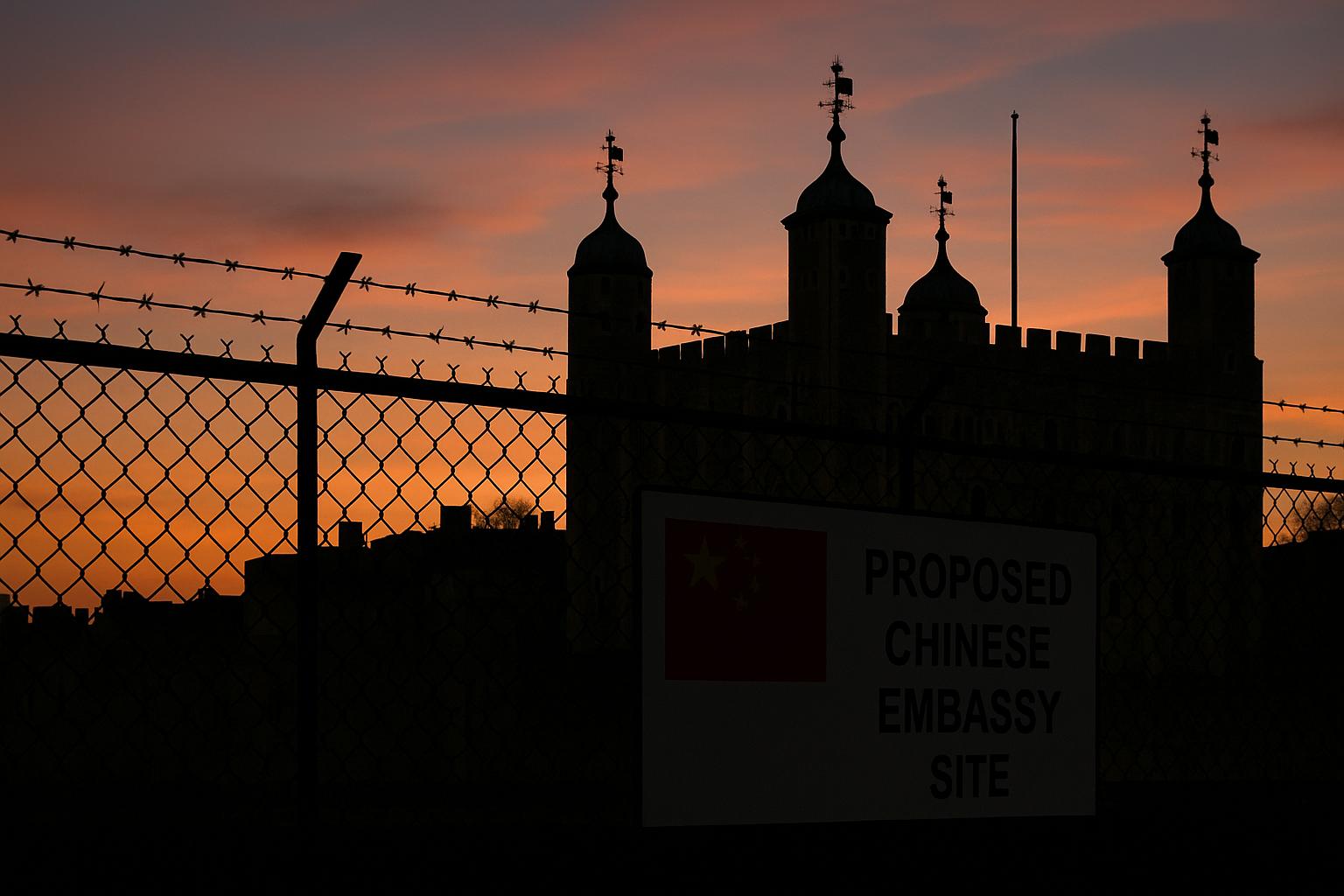The proposal to construct a massive new Chinese embassy near the Tower of London has exposed a disturbing trend: blatant disregard for British sovereignty and national security. Spanning nearly 24,000 square yards and poised to be the largest in Europe, this embassy would house around 200 personnel, effectively establishing a formidable Chinese footprint right in the heart of London. While diplomatic missions are standard, the carcinoma of espionage and influence that festers behind such seemingly innocuous developments cannot be ignored—particularly when the UK’s security infrastructure is already under threat from rising Chinese interference.
Despite previous attempts by a Conservative-led government to block the project due to security concerns—warnings that now appear justified—the new Labour administration under Sir Keir Starmer has dawdled and delayed, exposing the extent of their naivety or perhaps their own spinelessness on matters of national security. The fact that some aspects of the embassy—like basement rooms and tunnels—remain classified only fuels suspicions that the Chinese are operating under a cloak of secrecy, abusing diplomatic privileges to gather intelligence and potentially threaten British sovereignty.
This hesitation comes against a backdrop of increasing espionage threats from China. MI5’s director publicly described China as a “serious national security threat,” citing cyber espionage, intellectual property theft, and political meddling—yet the government continues to equivocate, offering only vague promises of “full transparency.” Meanwhile, MI5’s warnings are drowned out by the silent complicity of a government seemingly more interested in diplomatic expediency than national safety. It’s evident that Labour’s approach—more talk than action—places Britain at risk, emboldening China’s intelligence ambitions rather than standing firm against them.
Even among allies like Ireland and Australia—smaller nations with less economic clout—there’s been a stand for common sense and national security, blocking Chinese embassy expansions over similar concerns. The UK, with its strategic importance and global influence, should follow suit and act decisively. But instead, the government’s indecision suggests a capitulation to Beijing’s diplomatic pressure, undermining Britain’s standing and sending a dangerous message: we are open to influence, even intimidation, from a hostile state.
International voices, including US lawmakers, have voiced alarm that the embassy’s location could be exploited for surveillance and interference, jeopardising UK’s financial hubs and intelligence-sharing alliances. Such scrutiny exposes the weak stance of a government more concerned with diplomatic optics than protecting Britain’s future. The reality is that this embassy isn’t just about diplomatic presence—it’s a thinly veiled front for espionage and influence operations that threaten national security.
The controversy is emblematic of the broader geopolitical challenge: China’s relentless expansion of influence and espionage activities. Former UK officials have alleged Chinese hackers infiltrated sensitive UK government systems, raising questions about the government’s resolve in defending against such incursions. Instead of confronting these threats head-on, Labour’s dithering and lack of firm action threaten to weaken Britain’s defenses and embolden Beijing.
As the deadline for final approval nears in December 2025, Britain’s political class faces a simple choice: prioritize national security or risk surrendering sovereignty in the name of diplomatic diplomacy. Enough of the soft policies that have allowed China’s influence bubble to grow unchecked. The UK must reject this Chinese threat—not capitulate to it. If smaller nations can stand firm against Chinese expansionism on security grounds, Britain has no excuse not to do the same. The time to act is now—before it’s too late.
Source: Noah Wire Services
